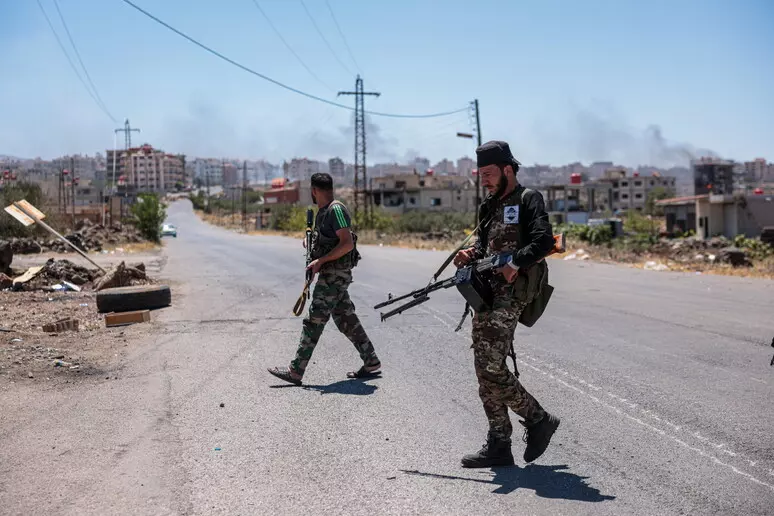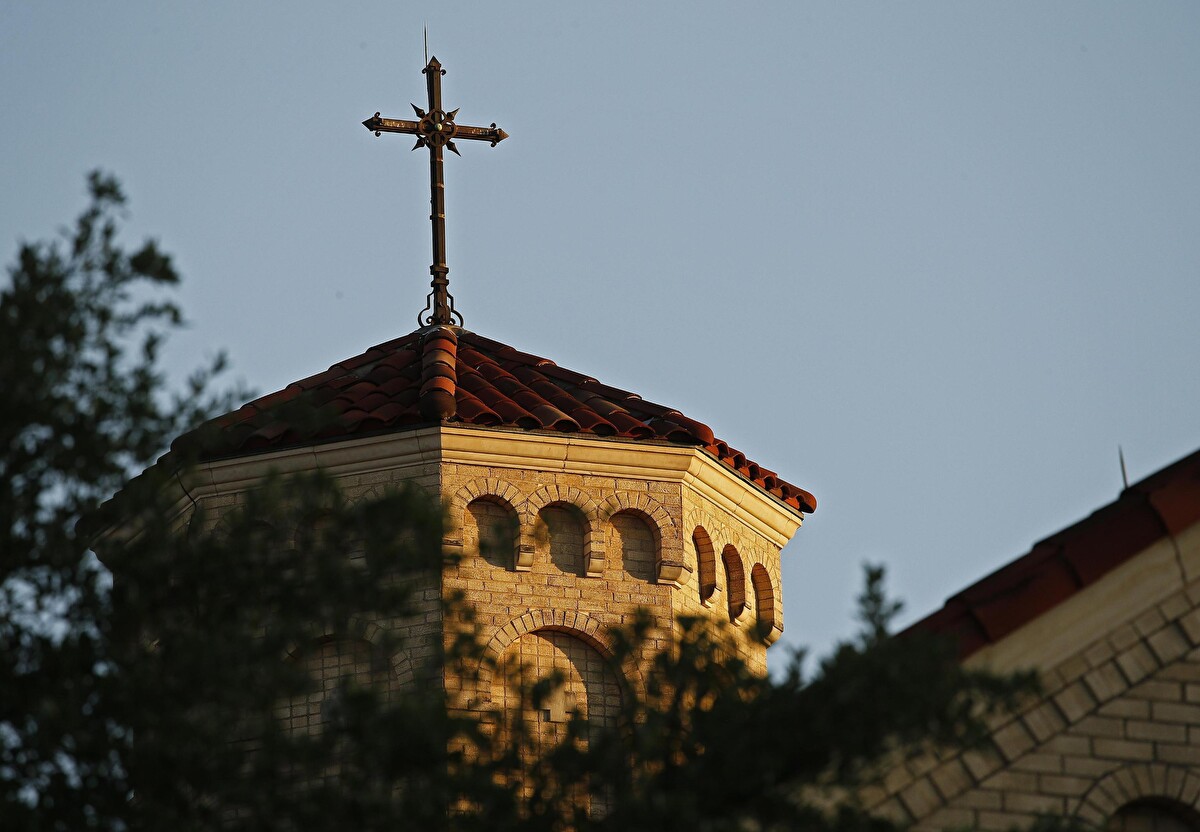Tensions in Syria are once again boiling over. On Wednesday morning, an Israeli missile struck the entrance to the Syrian army’s main headquarters in Damascus. The strike came as intense fighting continued in the southern province of Suweida between Druze militias and government forces. More than 200 people have been killed over the past four days, marking the bloodiest confrontation since President Ahmed al-Sharaa took office.
The violence erupted Sunday, when armed Bedouin tribesmen assaulted a Druze merchant on a major highway. What began as a localized incident quickly escalated into a full-blown conflict involving kidnappings, reprisal attacks, and open clashes between long-established Druze militias, who have controlled the region for years, and pro-government tribal factions.
On Monday, the government deployed troops under the pretext of restoring order. But for many within the Druze community, the move was perceived as an offensive maneuver. The militias mobilized in response, and the conflict soon spread to the streets of Suweida city.
Despite a cease-fire announcement on Tuesday, violence resumed with renewed intensity on Wednesday. According to Syria’s state-run news agency SANA, “outlaw groups” attacked government positions in Suweida, prompting soldiers to return fire. Hours later, Israeli jets conducted multiple targeted strikes on Syrian military convoys heading south, culminating in the direct hit on the army’s command compound in the capital.
Damascus condemned the attacks, with the defense ministry accusing Israel of a “deliberate act of aggression” and a “flagrant violation of Syrian sovereignty.” Israeli Defense Minister Israel Katz responded bluntly: “If regime forces do not withdraw from Suweida, military operations will continue and the level of response will be raised.”
For years, Suweida has operated as a de facto autonomous zone. Local Druze militias emerged during the long civil war to defend their communities against both Bashar al-Assad’s regime and Islamist militants. The fall of Assad in December did little to alter the power dynamics in the south, as the new Sunni Islamist-led government in Damascus has struggled to assert control.
President al-Sharaa has promised inclusion and respect for Syria’s diverse religious minorities. But Druze leaders remain wary, rejecting repeated calls to disarm and integrate into the national army. In the current Syrian cabinet, only one minister is Druze. Community leaders say they’ve been shut out of national decision-making and warn of marginalization under the new leadership.
With some 130,000 Druze citizens serving in Israel’s military and security forces, the Jewish state views developments in Suweida as both a moral and strategic concern. Prime Minister Benjamin Netanyahu has repeatedly referred to a “historic alliance” with the Druze and emphasized their “familial ties” across the border.
Beyond cultural solidarity lies, however, a hardline military doctrine. The collapse of Assad’s regime created a power vacuum in southern Syria, an unstable, contested area near the borders with Jordan and the Israeli-occupied Golan Heights. In recent months, Israel has unilaterally declared parts of southern Syria a demilitarized zone and has increased its airstrikes on convoys suspected of transporting Iranian weapons or fighters.
The escalation comes at a sensitive diplomatic moment. Following Assad’s fall, the United States has promoted backchannel talks between Israel and Syria, hoping to fold Damascus into the Abraham Accords. In May, President Trump met with al-Sharaa in Riyadh and announced the lifting of U.S. sanctions, a move that was widely interpreted as a gesture toward reintegration.
But Israel remains skeptical. Netanyahu has called Syria’s new government “a radical Islamic regime” and privately urged Trump not to move too quickly on normalization. According to Israeli sources cited by CNN, Netanyahu also lobbied against lifting the sanctions, warning that the outcome could resemble the events of October 7, 2023, when Hamas-led militants launched a surprise attack on Israeli territory.
Even within Suweida’s Druze population, there is no consensus. On Tuesday, influential spiritual leader Sheikh Hikmat al-Hijri called for “international protection from all countries” to stop what he described as “a full-scale war of extermination.” In a video message, he accused Syrian government and allied forces of using all means to crush the community.
Other Druze leaders, however, welcomed the government’s intervention and urged local fighters to disarm and open negotiations with Damascus. The divide reflects deeper generational tensions, between younger militants pushing for continued resistance and older figures wary of returning to the anarchy of the civil war years.












